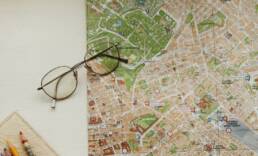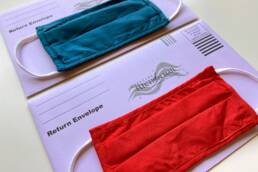#MPSAchat
QAnon: The Conspiracy Theory Behind the Capitol Seizure
by Michael A. Smith, Professor of Political Science, Emporia State University On January 6, followers of former President Trump stormed and seized the United States Capitol, temporarily halting the certification of electoral votes. Photos and news accounts of the event point to a popular…
Keeping an Eye on the Map, Notes from Central Eastern Europe
by Raluca Viman-Miller, Assistant Professor, University of North Georgia Nowadays we are completely overtaken by the COVID-19 global pandemic and our focus seems to almost exclusively be on counting infections, comparing rates of evolution or devolution of the disease and following on the good, and…
The Institute for Humane Studies - Working for You
Submitted by The Institute for Humane Studies When you think of the role of academia in society, what comes to mind? Perhaps you envision broader, intellectual discourse, or the civil exchange of ideas? It might be that you’re interested in how philosophy, politics, and economics are interwoven to…
Voter Fraud or Voter Suppression? Using Political Science to Evaluate Competing Claims
by Michael A. Smith, Professor of Political Science, Emporia State University This year’s contentious political climate has escalated a longstanding, partisan dispute over election laws and their enforcement. Led by President Trump, Republicans are sounding the alarm about possible voter fraud,…
Celebrating 90 Years of University of Michigan Press
by Shaun Manning, Publications Sales and Exhibits Manager, University of Michigan Press. What is your company’s history? What sets your company apart? University of Michigan Press was founded in 1930, making 2020 our 90th anniversary year. Our disciplinary strength in political science and…
Geographical Coverage in Political Science Research
by Matthew Charles Wilson, Assistant Professor of Political Science at the University of South Carolina and Carl Henrik Knutsen, Professor of Political Science at the University of Oslo. Political scientists often endeavor to make general claims about how politics works and explanations that…
Exhibitor Spotlight: Springer Nature
by Lorraine Klimowich, Senior Editor for Political Science, Economics, and Public Administration, Springer Nature What is your company’s history? What sets your company apart? Springer was founded by Julius Springer in 1842 in Berlin. It quickly became Germany’s leading scientific publisher. Over…
Is the Preference for Chaos a Rational Decision?
by Michael A. Smith, Professor of Political Science, Emporia State University The study of “fake news” and other rumors spread via social media are gaining steam. Recent work by political scientists fundamentally challenges the conventional wisdom about the fake news phenomenon and the…
Govern the Ungoverned: How State Presence Leads to Civil Conflict
By Luwei Ying, Ph.D. Candidate, Department of Political Science, Washington University in St. Louis Political scientists and policy-makers have long argued that state weakness leads to civil conflict while enhancing state power helps prevent violence. Why, then, has increased state capacity…
Teaching Tactics: A Simple Hack for Maintaining Personal Connections to Students
By Matthew Charles Wilson, Ph.D., Assistant Professor, Department of Political Science, University of South Carolina This blog was originally published by the Incubator for Teaching Innovation at the College of Arts and Sciences/University of South Carolina:…







